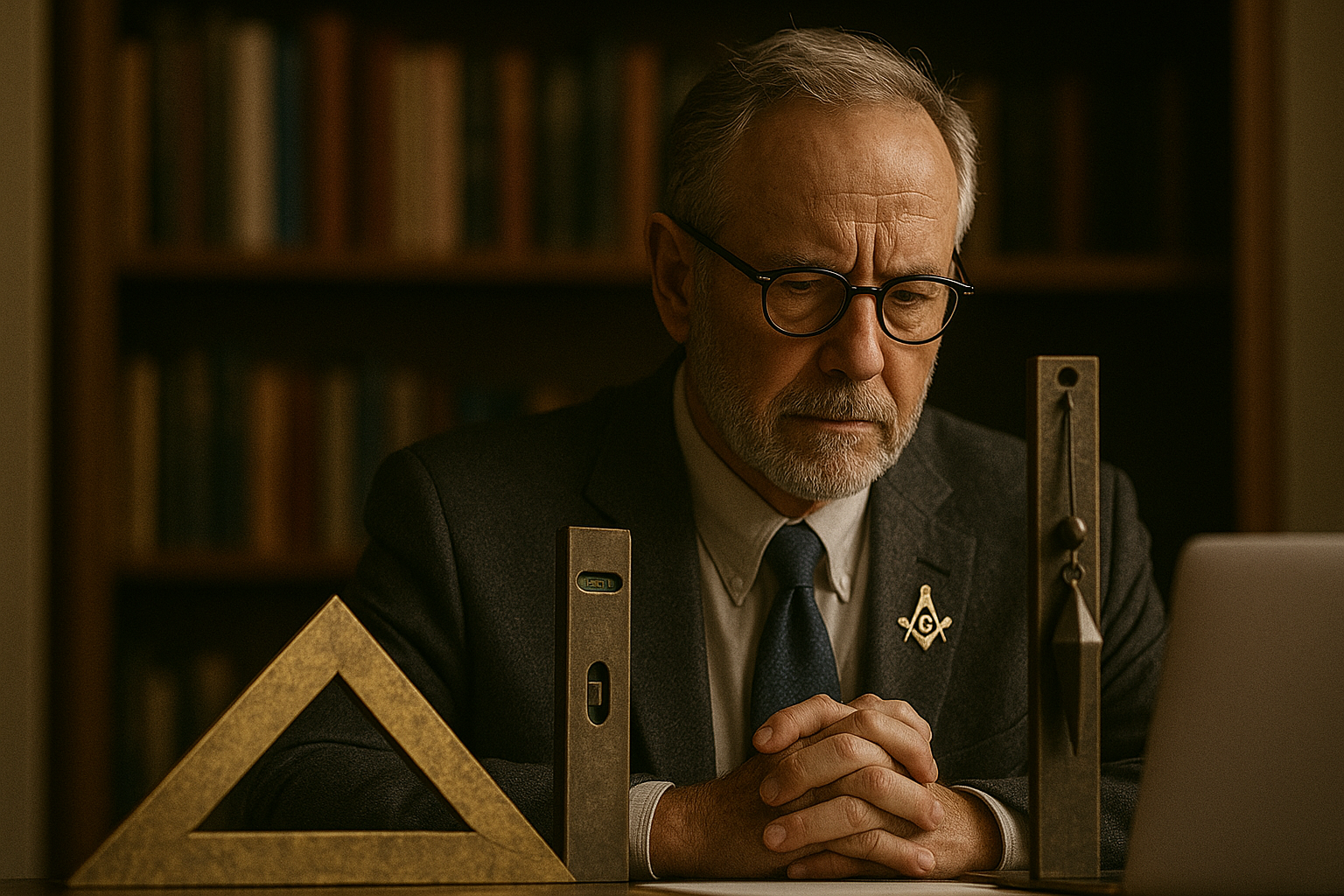By Armen Mardirousi, PM
“How often do we pause to question the assumptions that shape our daily lives?” This simple yet profound question touches at the heart of every Mason’s journey. Freemasonry has long championed the pursuit of knowledge—inviting us to peer beyond the familiar and embrace a spirit of lifelong learning. In an age when it is all too easy to become complacent, the craft calls on us to kindle the flame of curiosity that enlightens our paths both within and beyond the Lodge.
From the very outset, the symbolism of Freemasonry points toward continuous growth. Our working tools—a square, a level, a plumb—are not just implements for building the outer temple, but also reminders that we are perpetually constructing ourselves from rough ashlar into perfected stone. This transformation demands study, reflection, and a thirst for deeper understanding.
Historically, some of the most renowned Masons—figures like Benjamin Franklin and Voltaire—were driven by an insatiable appetite for knowledge. They embodied the Masonic principle of building a better self to build a better society. By prioritizing education and curiosity, we honor that legacy and fortify the pillars of Brotherly Love, Relief, and Truth in our modern world.
Why This Matters Now
In an era where attention spans are short and information can be overwhelming, complacency grows when we allow ourselves to passively accept the status quo. Yet Freemasonry offers an antidote: a structured framework for reflection, improvement, and genuine discovery. It encourages Masons to delve into philosophy, history, moral teachings, and esoteric traditions—not out of mere tradition, but as a means to expand the mind and refine personal character.
A Lodge that actively fosters education ensures that its members continually progress in understanding the rituals, symbols, and ethical imperatives of the Fraternity. Moreover, a well-educated Mason can better serve the community, bringing insights to civil discourse and civic life. Education, after all, broadens empathy, fosters unity, and cultivates the capacity for wise leadership.
Ways for Lodges to Promote Education
-
- Inviting Lectures & Guest Speakers
-
- Host monthly or quarterly lectures on topics related to Masonic history, symbolism, philosophy, or contemporary issues.
- Invite historians, theologians, or experts in esoteric studies to share diverse perspectives.
- Encourage interactive Q&A sessions so members can dive deeper and apply what they learn.
-
- Book Clubs & Study Groups
-
- Organize a recurring book club focused on cornerstone works of Masonic thought (e.g., The Builders by Joseph Fort Newton or The Meaning of Masonry by W.L. Wilmshurst).
- Meet in-person or virtually to discuss themes, share insights, and spur one another’s curiosity.
- Rotate facilitators so every member contributes to the conversation and develops leadership skills.
-
- Partnerships with Local Schools & Community Organizations
-
- Collaborate with local high schools, community colleges, or historical societies for joint educational events.
- Offer scholarships or sponsor essay competitions on topics of moral and civic responsibility.
- Host open-house presentations about Masonic traditions to demystify Freemasonry and spark interest in its values.
-
- Inviting Lectures & Guest Speakers
Recommended Books and Podcasts
- Books
-
- The Builders by Joseph Fort Newton – A classic exploration of Masonic history and philosophy.
- The Meaning of Masonry by W.L. Wilmshurst – Delve into the spiritual significance of our symbols and rituals.
- Morals and Dogma by Albert Pike – While dense, it provides profound insights into the moral and allegorical underpinnings of Freemasonry.
- Freemasons For Dummies by Christopher Hodapp – An accessible overview for both new and seasoned Masons.
-
- Podcasts
-
- Whence Came You? – Engaging episodes on Masonic history, trivia, and interviews with leading figures in the Fraternity.
- The Winding Stairs Freemasonry Podcast – Explores the practical and esoteric aspects of Masonic teachings.
- The Masonic Roundtable – A panel of brothers discussing current Masonic issues, book reviews, and Lodge best practices.
-
Modern Relevance & Personal Reflection
Masonic education is not an exercise in abstraction. Rather, it challenges us to examine how the values of the Fraternity—integrity, moral fortitude, and brotherly love—manifest in our daily interactions. Lectures and reading groups become an incubator for empathy and wisdom, reminding us that even the smallest seed of new knowledge can bear fruit in how we conduct ourselves as men and as Masons.
By anchoring ourselves in the craft’s timeless tenets, we arm ourselves against the tides of complacency. We transform from passive spectators in a rapidly changing world into active builders of a better future—for our Lodge, for our families, and for our communities.

